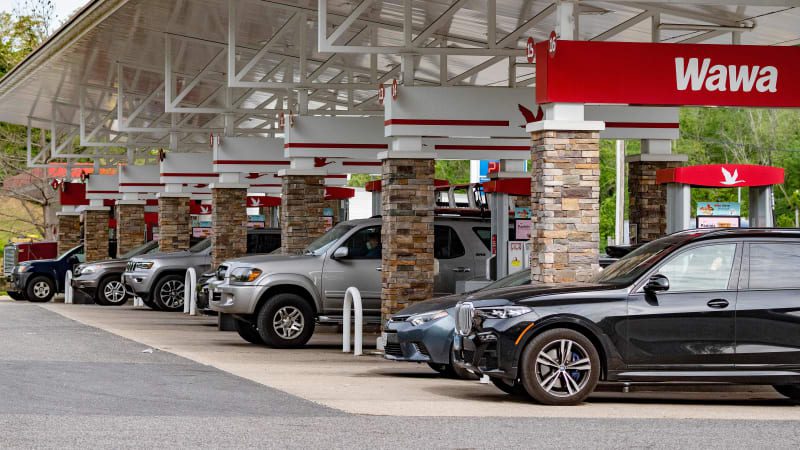U.S. vehicles set a fuel economy record in model year 2022, EPA says

WASHINGTON — U.S. new vehicles set a record high for fuel economy in 2022, with the highest yearly improvement in nine years to an average of 26 miles per gallon, yet the Detroit Three automakers continued to lag rivals.
Vehicles were up 0.6 mpg over 2021 after being unchanged versus 2020, the Environmental Protection Agency said, noting electric vehicles and plug-in hybrid electric vehicles improved the average fuel economy by 1.2 mpg in 2022. Fuel economy is forecast to increase to 26.9 mpg in 2023, the EPA said.
EPA Administrator Michael Regan said the report “highlights the historic progress made so far by the industry to reduce climate pollution and other harmful emissions.”
The report showed Tesla sold additional emissions credits, and General Motors and Mercedes-Benz purchased credits in 2022. Automakers use credits to meet requirements.
Stellantis, typically the leading buyer of Tesla credits, had the lowest fuel economy of major automakers, followed by GM and Ford. Horsepower, vehicle weight and size all hit new records in 2022 — and are projected to hit again hit record levels in 2023.
The EPA said EVs, plug-in hybrid and fuel-cell production rose to 7% in 2022 and are projected to hit 12% in 2023. Average range of EVs rose to a new high of 305 miles — more than four times the 2011 range.
The report showed Americans kept moving away from cars and are buying more SUVs. Sedans and wagons fell to just 27% of vehicles sold in 2022, while SUVs rose to 54%.
The EPA in April proposed sweeping emissions cuts for new vehicles through 2032, including a 56% reduction in projected fleet average emissions over 2026 requirements that it says would result in 67% of new vehicles by 2032 being electric.
Dan Becker, director of the Center for Biological Diversity’s Safe Climate Transport Campaign, said EPA should finalize even tougher rules, while automakers and the United Auto Workers union want the EPA to soften its proposal set to be finalized.



